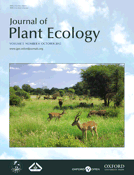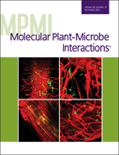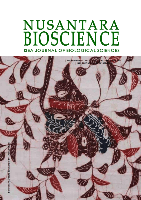
Phytobiomes Journal
metrics 2024
Empowering sustainable agriculture with cutting-edge insights.
Introduction
Phytobiomes Journal, published by the American Phytopathological Society, is a leading open access journal that has been at the forefront of phytobiome research since its inception in 2017. With its robust impact factor reflected in its high rankings across multiple fields—achieving Q1 status in Agronomy and Crop Science, Ecology, Ecology, Evolution, Behavior and Systematics, and Plant Science—the journal stands out in presenting cutting-edge research that integrates biological disciplines to enhance understanding of plant health and productivity. The journal’s open access model ensures that research findings are accessible to a global audience, fostering collaboration and innovation in the fields of plant science, ecology, and phytopathology. With its strategic location in the United States and a commitment to publishing high-quality, peer-reviewed content, Phytobiomes Journal plays a pivotal role in advancing knowledge and practices that address the challenges in sustainable agriculture and environmental stewardship.
Metrics 2024
 -
- 3.30
3.30 3.70
3.70 -
-Metrics History
Rank 2024
IF (Web Of Science)
JCI (Web Of Science)
Quartile History
Similar Journals

Journal of Plant Ecology
Innovating Understanding in Plant ScienceJournal of Plant Ecology, published by Oxford University Press, is a premier journal dedicated to advancing the scientific understanding of plant ecology. With an ISSN of 1752-9921 and an E-ISSN of 1752-993X, this journal has established itself as a leading resource in the field, maintaining a prestigious Q1 ranking across multiple categories in the 2023 Scopus rankings, including Ecology, Evolution, Behavior and Systematics and Plant Science. The journal's commitment to high-quality research is underscored by its influence in agricultural and biological sciences, reflected in its competitive percentiles. While currently not offering open access, its comprehensive scope spans various ecological issues critical to understanding plant interactions and ecosystems, making it an essential read for researchers, educators, and students alike. The Journal of Plant Ecology not only facilitates the dissemination of vital findings but also fosters collaboration within the global scientific community. Discover more about the latest innovative research and key developments in plant ecology, and contribute to the dialogue that shapes our understanding of environmental stewardship and biodiversity conservation.

Biocatalysis and Agricultural Biotechnology
Advancing Sustainable Solutions in AgricultureBiocatalysis and Agricultural Biotechnology, published by Elsevier, is a distinguished journal in the fields of agronomy, biotechnology, and applied microbiology. With an E-ISSN of 1878-8181, this journal has an impressive impact factor and consistently ranks in the top quadrants of Scopus, notably Q1 in Agronomy and Crop Science and Q2 in several related categories. Since its inception in 2012, it aims to bridge the gap between biocatalysis applications and agricultural practices, fostering innovative research that advances sustainable agriculture and biotechnological applications. The journal is highly regarded, with a Scopus rank of #47 out of 406 in Agronomy and Crop Science, exemplifying its significance in the academic community. As an essential resource for researchers, professionals, and students, it provides a platform for sharing cutting-edge findings that address crucial global challenges in food security, environmental sustainability, and biotechnological advancements. Located in Amsterdam, Netherlands, the journal continues to contribute to the growth and interdisciplinary dialogue in agricultural and biological sciences.

Horticulture Environment and Biotechnology
Fostering Global Collaboration in Horticultural ExcellenceHorticulture Environment and Biotechnology is a prestigious journal published by the Korean Society of Horticultural Science, dedicated to advancing knowledge in the fields of horticulture, biotechnology, and plant science. Since its inception in 2011, this journal has played a crucial role in disseminating high-quality research, evidenced by its 2023 category quartile rankings, which position it in Q1 for Horticulture and Q2 for Biotechnology and Plant Science. With impressive Scopus rankings, including Rank #18 out of 115 in Horticulture, the journal continues to demonstrate its significance within the academic community by contributing to innovative practices and findings that impact both environmental sustainability and horticultural advancements. Currently, the journal is accessible to a global audience, facilitating the exchange of ideas and research outcomes with no open-access fees. Horticulture Environment and Biotechnology strives to support researchers, professionals, and students alike by providing a platform for critical discussions on the intersection of horticultural science and biotechnology, thereby fostering the development of sustainable agricultural practices that align with contemporary challenges.

Plant Science Today
Advancing plant knowledge for a sustainable tomorrow.Plant Science Today is a prominent journal dedicated to advancing the field of plant sciences through innovative research and comprehensive reviews. Published by HORIZON E-PUBLISHING GROUP in India, this open-access journal has been actively disseminating knowledge since its inception in 2018, with a convergence period extending to 2024. With an ISSN of 2348-1900 and a growing reputation, it is categorized in various quartiles for 2023, notably achieving Q3 in Biochemistry, Genetics and Molecular Biology (miscellaneous), while it holds Q4 rankings in critical fields including Ecology and Plant Science. As a valuable resource for students, researchers, and professionals, Plant Science Today aims to inspire discussion and innovation in the realm of ecological and plant science disciplines, where it currently ranks within the lower percentiles in prominent categories such as Environmental Science and Agricultural and Biological Sciences. The journal serves as a crucial platform for the exploration of experimental and theoretical advances, fostering a community eager to explore plant biology's complexities.

Zemdirbyste-Agriculture
Empowering the agricultural community through open access insights.Zemdirbyste-Agriculture is a prominent journal dedicated to advancing the field of agricultural sciences, with a particular focus on agronomy and crop science. Published by the Lithuanian Research Centre Agriculture & Forestry, this open access journal has been fostering knowledge sharing and scientific discourse since 2004, allowing researchers, professionals, and students unrestricted access to its content. Located in the beautiful country of Lithuania, specifically at Vytautas Magnus University, this journal plays a significant role in disseminating innovative research findings. With a 2023 Scopus ranking of #246 out of 406 in the category of Agricultural and Biological Sciences, Zemdirbyste-Agriculture falls within the Q3 quartile, reflecting its growing influence in the academic community. This journal, which has converged its publication focus from 2008 to 2023, aims to provide a platform for scientists to share their critical insights on agricultural practices, sustainability, and technological advancements in crop science, thereby contributing to the global discourse on food security and environmental health.

MOLECULAR PLANT-MICROBE INTERACTIONS
Exploring the Intricacies of Plant-Microbe DynamicsMOLECULAR PLANT-MICROBE INTERACTIONS is a premier journal dedicated to the exploration of the complex interactions between plants and microbes, providing a vital platform for researchers in agronomy, crop science, and plant physiology. Published by the American Phytopathological Society, this journal has been serving the academic community since 1988 and continues to be at the forefront of advances in molecular biology and plant-microbe symbiosis, with a notable impact factor reflecting its esteemed position in the field. As a Q1 journal in both Agronomy and Crop Science and Medicine (miscellaneous), and holding a significant ranking in the Scopus categories, it is recognized for publishing high-quality, peer-reviewed research that is essential for understanding and improving agricultural practices. Although it is not an open-access journal, it provides critical insights that facilitate collaborative efforts among researchers, professionals, and students alike. The journal’s objectives focus on enhancing our understanding of plant health, disease resistance, and ecological sustainability, making it a crucial resource for anyone interested in the intricate research landscape of plant-microbe dynamics.

Animal Microbiome
Advancing the Frontiers of Animal Microbiome ResearchAnimal Microbiome is a leading peer-reviewed journal dedicated to advancing research in the interrelated fields of microbiology, veterinary science, and animal biology. Published by BMC, this open access journal has been a valuable resource since its launch in 2019, providing a platform for the dissemination of groundbreaking studies and reviews that enhance our understanding of the complex microbial communities and their effects on animal health and ecosystems. As evidenced by its prestigious Q1 rankings in various categories—including Agricultural and Biological Sciences, Animal Science and Zoology, and Microbiology—Animal Microbiome reaches a global audience, positioning itself among the top 5% of journals in its field. With an impactful presence in Scopus, where it ranks highly for its contributions, researchers, professionals, and students can access a wealth of knowledge and innovations through its open access model. The journal aims to foster interdisciplinary collaboration and elevate scientific discourse surrounding animal microbiomes, ultimately contributing to enhanced animal welfare, improved agricultural practices, and a deeper understanding of microbial dynamics in health and disease.

Tropical Plant Pathology
Elevating research on tropical plant challenges.Tropical Plant Pathology, published by Springer, is a leading journal in the fields of Agronomy and Crop Science as well as Plant Science, as evidenced by its impressive position in the Q2 quartile rankings for 2023. This esteemed journal, with an ISSN of 1983-2052, focuses on the intricacies of plant diseases and their management, showcasing significant research that addresses challenges faced by agronomists and plant scientists, particularly in tropical environments. With a Scopus ranking of 147th in Plant Science and 116th in Agronomy and Crop Science, it is recognized for its contribution to the advancement of knowledge in these areas, which is crucial for food security and sustainable agriculture. The journal operates under a model that facilitates researchers and professionals in disseminating their work effectively, fostering an ongoing dialogue among scholars dedicated to enhancing crop health and productivity. Discover more about groundbreaking studies in plant pathology that shape the future of agriculture!

Nusantara Bioscience
Advancing the Frontiers of Bioscience KnowledgeNusantara Bioscience is a prominent open-access journal dedicated to the field of biosciences, published by the Masters Program in Public Health at UNIV SEBELAS MARET in Surakarta, Indonesia. Since its inception in 2009, this journal has made significant contributions to the global discourse on biological sciences, environmental health, and public health research, providing researchers and professionals with an essential platform for sharing their findings. The journal, which holds an ISSN of 2087-3948 and an E-ISSN of 2087-3956, is committed to maintaining high academic standards while ensuring accessibility to quality research outcomes. Nusantara Bioscience enables a diverse audience, from students to seasoned researchers, to disseminate impactful studies and advance knowledge in the biosciences, reflecting the evolving challenges and innovations within the field.

Nature Plants
Innovating Research to Nourish Our PlanetNature Plants is a premier journal dedicated to the dynamic and interdisciplinary field of plant science, published by NATURE PORTFOLIO in the United Kingdom. With an impressive impact factor placing it in the top tier of scholarly journals—ranking Q1 in Plant Science for 2023—this journal sets a high standard for research dissemination. Nature Plants has maintained a remarkable Scopus Rank of 5 out of 516 in the Agricultural and Biological Sciences category, reflecting its pivotal role in advancing knowledge in the field. The journal aims to provide a platform for groundbreaking research that addresses key challenges in plant biology, ecology, and agriculture, thereby fostering a deeper understanding of plant science's contribution to global sustainability. Although primarily non-open access, it offers exclusive insights and robust discussions, making it an indispensable resource for researchers, professionals, and students eager to explore the latest advancements and innovations in plant science.